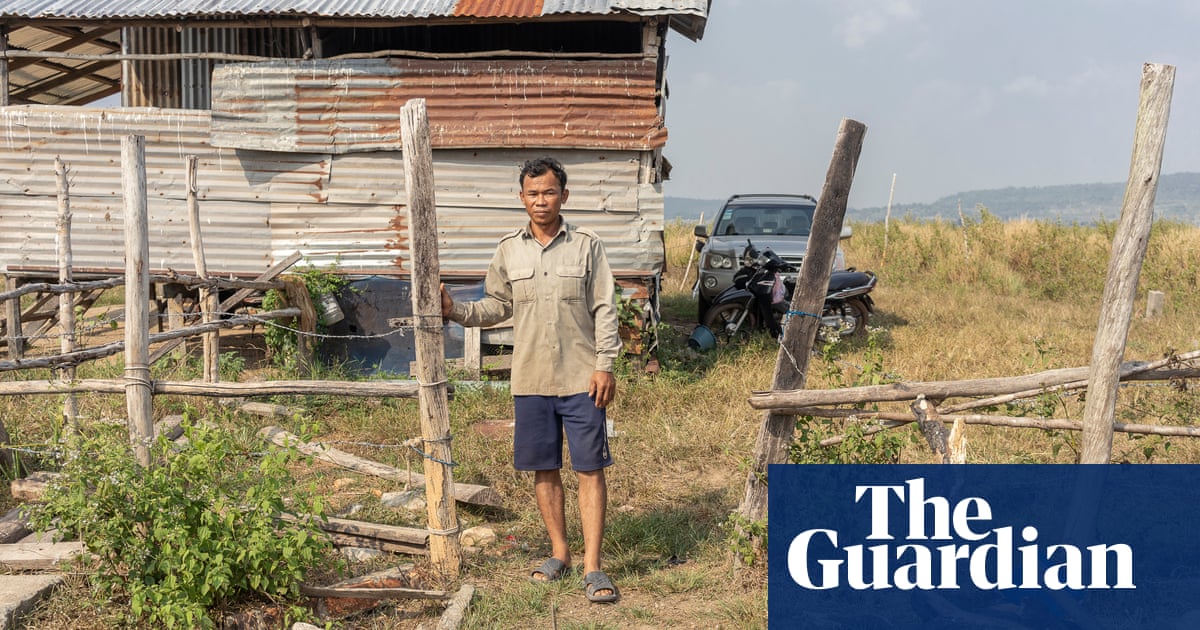

EXPOSED! Tate & Lyle – Not So Sweet
source link: https://decentralize.today/exposed-tate-lyle-not-so-sweet/
Go to the source link to view the article. You can view the picture content, updated content and better typesetting reading experience. If the link is broken, please click the button below to view the snapshot at that time.

Tate and Lyle is a British-headquartered global supplier of food and beverage ingredients to industrial markets. In February 2008 it was announced that Tate & Lyle granulated white cane sugar would be accredited as a Fairtrade product, with all the company’s other products to follow in 2009. The Fairtrade certification initiative was created to form a new method of economic trade. This method takes an ethical standpoint and considers the producers first.
In recent years, land grabbing has become increasingly prevalent in Cambodia. The most extensive instances are economic land concessions (ELCs) whereby up to 10,000 hectares of government land per concession can be granted to private companies for agro-industrial exploitation for a fixed period of years, capped at 99 years. The 2001 Land Law of Cambodia also allows the government to expropriate private land from citizens for ELCs. In reality, however, many ELCs of private land have been unlawful as they involve forced eviction of land owners. The situation has become so bad that in September of last year, about 1,000 villagers from 3 Cambodian provinces blocked the road leading to the Land Ministry in Phnom Penh demanding government help in resolving disputes over land taken by private companies and politically connected business people.
In August 2006, 19,100 hectares of private land in Cambodia’s Koh Kong province that are good for growing sugarcane were unlawfully granted in ELCs to two Cambodian Sugar companies, Kon Kong Plantation Co, Ltd and Koh Kong Sugar Co. Ltd. The two companies are owned and managed by the same entities, share the same office space and had applied for the ELCs on the same dates. Using two separate companies to apply for ELCs was clearly the owner’s attempt to circumvent the legal restriction of 10,000 hectares per ELC. The two ELCs resulted in a single sugar plantation operated by the Thai company Khon Kaen Sugar Ltd. (KSL), majority owner of the two companies.
To make room for the sugar plantation, about 4,000 Koh Kong villagers were violently evicted from their lands and forced to relocate with nominal offers of compensation, violating the Land Law and Constitution which require “fair and just compensation in advance.” The villagers complained that they were never consulted prior to the grant of the concessions and that the land transfer was illegal. In February 2007, the villagers filed a complaint against the sugar companies seeking cancellation of the concession contract.
In 2009, KSL entered into a five-year contract to sell raw sugar produced on the plantation exclusively to Tate & Lyle Sugars and the first shipment of 10,000 tons arrived in the UK the following year.
In 2012, a judge ruled that the court did not have the power to hear land disputes and transferred the case to the Cadastral Commission. However, the villagers argued that the case should go back to the court as their claim was about the legality of the concession rather than land ownership. In June 2015, the National Human Rights Commission of Thailand released a report in which it recognized that human rights violations had occurred at the site of the sugar plantation.
In March 2013, 200 villagers filed a complaint in England against Tate & Lyle and Tate & Lyle Sugars Limited (a subsidiary of American Sugar Refining). The plaintiffs maintained that they remained the legal owners of the land on which the Koh Kong companies grew sugar. Therefore they claimed under Cambodian law that they were the rightful owners of the crops grown on their land. The villagers claimed compensation for the profit from selling the sugar. For their part, Tate & Lyle argued that they had no knowledge of the facts asserted by the villagers wherein they claimed to be the rightful owners of the sugar purchased from the Koh Kong companies.
After lengthy negotiations, the villagers had the impression that Tate & Lyle would provide significant compensation for the families. Now, in 2021, Tate & Lyle announced it would not pay compensation to the plaintiffs, but would continue to pressure the supplier KSL to ensure compensation is provided to the effected families.
Ann Haiya, a community leader from Koh Kong said: “Initially we thought that Tate & Lyle respected human rights, and we hoped they would take responsibility. The community is very, very angry and feels hopeless, but they keep their will to work with the community leaders to keep fighting against Tate & Lyle”.
Martin Day, senior partner of the firm Leigh Day, which represents the families said:
“The claimants entered into settlement discussions with Tate & Lyle in good faith over six years ago but these discussions have led to nothing but empty promises and disappointment.”
http://www.boycottbloodsugar.net/wp-content/uploads/2012/07/NHRC-Findings-on-Koh-Kong-25-July.pdf
Recommend
About Joyk
Aggregate valuable and interesting links.
Joyk means Joy of geeK
